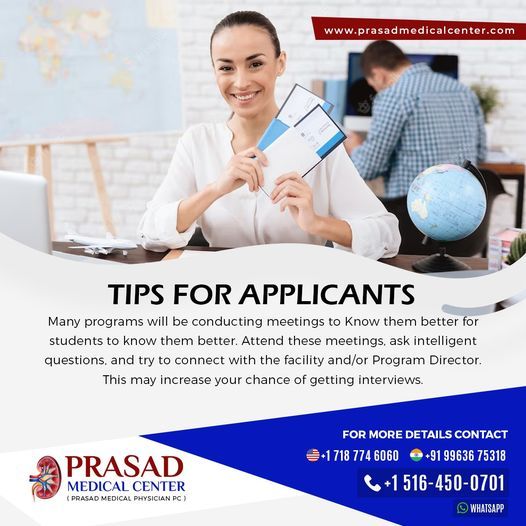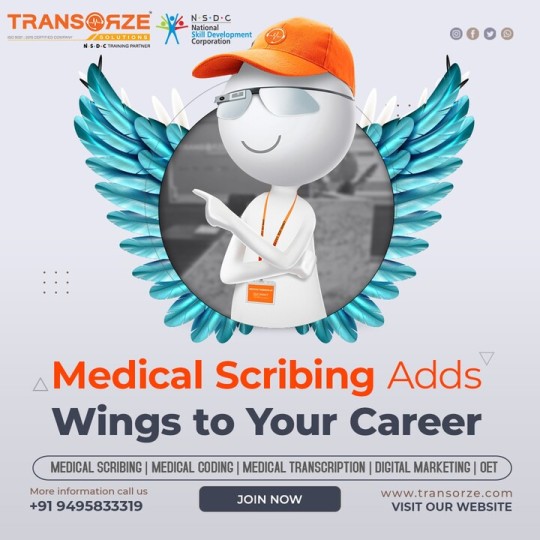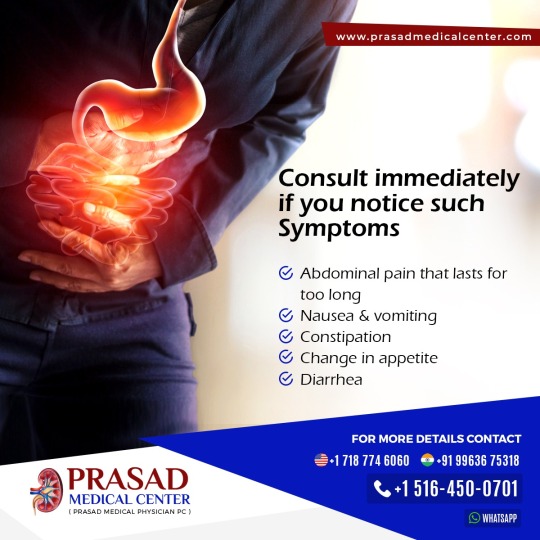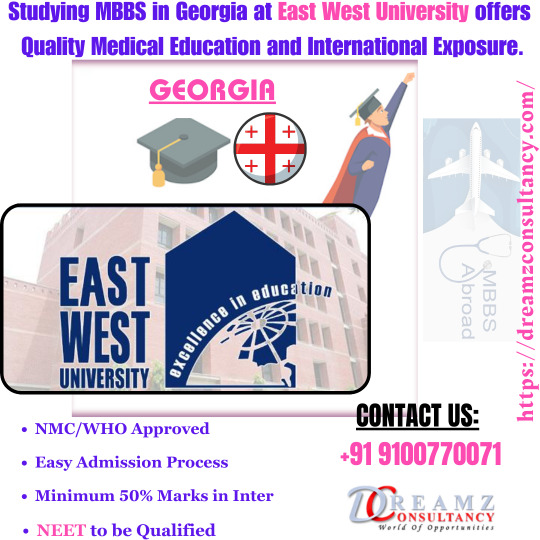#Meded
Explore tagged Tumblr posts
Text

We are proud to announce the publication of the next Pager Publications, Inc. print book, The Perfect Doctor, curated by Dr. Sasha Yakhkind and featuring 40 narratives written by patients, physicians and trainees about the imperfect pursuit of an ideal.
Learn more about the book at http://theperfectdoctor.org. You can purchase the book at http://tinyurl.com/theperfectdoctor.
All members of Pager Publications, Inc. are unpaid volunteers, and all book proceeds go to support the website hosting costs of our fellow online peer-managed publications, including in-Training.
7 notes
·
View notes
Text
Mulling over something right now.
My journey into understanding neurodivergence and my own AuDHD-ness has changed how I doctor, and sometimes I can see this when looking at things like auto text scripts I set up previously.
For example, when it comes to picky eaters, I used to do a lot of education about how to get kids to eat, discussing strategies like gamifying intake of fruits and vegetables, enforcing #-bite rules, and having cutoff times for meals. I also put a lot more weight on having a balanced, whole-food meal. The only thing I discussed that was focused on any underlying reason was involving kids in meal prep, though I didn't necessarily have a reason as to why. And, to be fair, these strategies work for picky, NT toddlers.
Contrast that to today, where I'm asking questions about texture sensitivities and taste preferences. I'm acknowledging that processed foods are more predictable than fresh. I'm discussing meal prep involvement as a means of sensory food play. I'm discussing about how stressful #-bite requirements can be and I'm encouraging having safe foods available and permissable - not as a means of giving in, but to make trying a new food less stressful. I'm also acknowledging that some food is better than no food, as long as we get the basics/macros in as we can always supplement micros with multivitamins.
These are things that weren't taught when I was in medical school or residency. I attended in 2015, just after the DSM changes and the focus then was, and largely still is, eating a "well-rounded", normativized, white, upper-middle class diet. Anything other than that was treated as subpar and is bad medicine, let alone parenting.
You know the other thing? When I started asking, do you know how many of my picky eaters DIDN'T have some kind of sensory basis to their eating patterns? Do you know just how many undiagnosed, unseen neurodivergent kids are out there, masking along, not making waves, with equally ND parents who don't know otherwise?
The number of times I see at least one parent squirm when I start asking the kids, especially older kids, autism symptom questions and autism distinct anxiety questions... Why, if I had a nickel for every time, I would definitely have more than two. It's not a coincidence.
#actually autistic#medicine#actually neurodivergent#autism#adult adhd#adhd#picky eater#sensory issues#pediatrics#medical education#meded#dietary counseling#nutrition#actually audhd#unexpected Doofenshmirtz
19 notes
·
View notes
Text
How to Get a Medical Residency in the USA as an International Medical Graduate

Choosing to the medical residency for IMG medical students in USA is the best opt. With world-class training opportunities and state-of-the-art facilities, landing a coveted US residency spot allows you to advance your skills and expertise to the highest level.
However, getting a US medical residency as an IMG involves a step-by-step process with many requirements along the way. By understanding and following the key steps, you’ll place yourself in the best position to match into your desired residency program.
1) Register with the USMLE
Your first step when applying for US residency positions is registering with the United States Medical Licensing Examination (USMLE). The USMLE is a three-step exam assessing an IMG’s medical knowledge and clinical skills. It is a core requirement when applying to US residency programs.
Registering is an easy process online via the USMLE website. You’ll need to create an account and provide background information on your medical education and credentials. This allows you access to schedule test dates and testing center locations.
Registering with the USMLE is the vital first step for IMGs seeking US medical residencies.
2) Pass the USMLE Exams
The next step is successfully passing all required USMLE exams. These are challenging, marathon tests covering a wide range of topics. Thorough preparation through dedicated study time and practice questions is a must.
The USMLE step structure is:
Step 1 - Assesses core concepts in basic medical sciences. Often taken after 2nd year of med school.
Step 2 CK - Focuses on medical knowledge application in clinical settings. Taken during 3rd year typically.
Step 2 CS - Evaluates clinical and communication skills through interactions with standardized patients.
Scoring well on your USMLEs signals to residency programs your strong medical knowledge foundation. It also indicates readiness for the fast-paced rigors of a US residency.
Many IMG applicants space out their exam schedule over a 1-2 year timeframe. Create your own prep timeline backward from desired residency start dates.
Allow plenty of dedicated study time to pass the USMLE exams.
3) Get Valuable Clinical Experience in the USA
In addition to tests, US residencies want applicants exposed to the American healthcare system and culture.
Gaining clinical experience in the US through observerships and clinical electives are a big advantage. These allow you hands-on learning of workflows, systems, treatments, technologies, patient populations, documentation, communication norms and more in American hospitals and clinics.
Observership organizations like Prasad Medical Center (+1 718-774-6060) assist IMGs in securing observership positions across the country. Be sure to research and understand program eligibility terms before applying.
Even a few weeks of US clinical experience can give that important edge among competitive applicants.
US clinical experience highlights adaptability to American medical norms.
4) Register with the AAMC
The Association of American Medical Colleges (AAMC) has two key systems you must access during your application process:
MSPE (Medical Student Performance Evaluation) – Official record of medical education including grades, rankings and assessment.
ERAS (Electronic Residency Application Service) – Centralized online application portal distributing all materials to selected residency programs.
Register with AAMC early to get your credentials verified, understand each platform and have ERAS documentation ready when application season starts.
Connecting with the AAMC is essential throughout the residency hunt.

5) Pick your Residency Programs
When deciding which residency programs to apply for, start broad. Identify specialties matching your interests, strengths and USMLE scores. Use online directories to make a list of reach, reasonable match and safety options across several states or regions.
Factors like location competitiveness, program size, IMG match history and curriculum emphasis can help you categorize options. Have a few safety choices with higher IMG acceptance rates.
Research programs thoroughly to have residency options at each level.
6) Get your ECFMG Token and Register with ERAS
Once programs are selected, activate your ECFMG (Educational Commission for Foreign Medical Graduates) token. This allows ERAS to verify your test scores, credentials and identity when applying.
Next, access your MyERAS applicant profile. Add your exam history, experiences, publications and other credentials that programs will review.
Double and triple check all entries for accuracy before submitting to avoid costly mistakes or delays.
MyERAS is your central application hub throughout the residency process.
7) Finalize Documentation and Submit ERAS Application
With your MyERAS profile complete, finalize all required documentation:
Personal statement
Medical school transcripts
MSPE Dean’s letter
Letters of recommendation (3+)
School catalogues
Proofread all materials thoroughly before uploading to ERAS by the deadlines. Activate program selections and assign supporting documents for each.
Carefully prepare all pieces of your ERAS application package.
8) Medical Residency Interview
With a strong application submitted early, interview offers should follow!
Interview formats vary widely across residencies. Common options include one-on-one, panel interviews, multiple mini interviews (MMIs) and virtual interviews.
Careful preparation is key. Research programs, polish answers to common questions, hone your communication style, dress professionally and send prompt thank you notes.
Treat travel associated interviews as 24/7 assessments of fit. Be gracious, avoid complaining and share your passion for medicine and interest in the program.
Interviews are critical to sealing a residency position – make the most of them!
9) Register with the NRMP
After interviewing, register with the National Resident Matching Program (NRMP) by late January. Creating your NRMP account starts the matching process based on how you rank programs and how they rank applicants.
The yearly Match Day in mid-March reveals results simultaneously to applicants across the country. This coordinated effort fills nearly 40,000 residency roles each spring.
Understand match statistics for given specialties and programs to set realistic expectations before this nerve-wracking day!
Learning match nuances helps ease the anticipation leading up to Match Day!
10) Residency Post-Match Focus
If matched, congratulations on achieving that coveted US residency program spot! Notify all relevant parties, celebrate thoroughly and handle any needed visa application processes.
Review program details to address required paperwork, licensing, preparations or moving requirements before start dates. Share excitements and ask graduated residents for advice as you transition to this intense but rewarding new chapter!
For those not matched, don’t be discouraged! Strategize about strengthening certain areas of your application and discuss options with mentors. Often success comes with perseverance and giving yourself the best opportunities the following year.
We hope this overview gives international medical graduates more clarity on the pathway to getting a US medical residency. While challenging, thousands achieve this goal annually through careful planning, dedication to preparation, and showing your passion for serving US patient populations.
If you still need assistance securing clinical experience or have any other questions along your journey, don’t hesitate to contact the knowledgeable team at Prasad Medical Center at (+1 718-774-6060) or visit https://www.prasadmedicalcenter.com/ We wish you the best of luck in achieving your American medical career dreams!
#usmle#step1#step2#step3#prasadmedicalcenter#medicalresidency#imgstudents#medicalstudents#clinicalresearch#meded
4 notes
·
View notes
Text
Followed by "I don't know when not to do it"
Followed by "I don't do it, unless..."

i could gush about witch hat atelier for a long time but these panels really stuck out to me as such a lovely thought about the process of learning
9K notes
·
View notes
Text

🔹 BOS WORLDWIDE WEBINAR: BONE & JOINT TUMOURS
📅 Date: 12th April 2025
⏰ Time: 8:30 PM IST
🔗 Click to Watch on BOS Channel: https://tinyurl.com/BOS-WWW-01
🔗 Click to Watch on OrthoTV: https://tinyurl.com/OrthoTV-WWW-01
🔹 PROGRAM TIMELINE
🎤 Welcome & Introduction to Bombay Orthopaedic Society – (08:30 PM - 08:40 PM)
1️⃣ Identifying Consensus & Areas for Future Research in Chondrosarcoma
(Bone Joint J. 2025;107-B(2):246-252)
🗣️ Panel Discussion – (08:40 PM - 09:10 PM)
2️⃣ Newer Bone & Joint Journal Educational Activities Beneficial for Orthopaedic Surgeons
📖 – (09:10 PM - 09:25 PM)
3️⃣ Common Clinical Cases in Musculoskeletal Oncology
🩺 – (09:25 PM - 10:25 PM)
🔚 Closing Remarks – (10:25 PM - 10:30 PM)
👨⚕️ Faculty Panel:
Dr. Yogesh Panchwagh, Dr. Mishil Parikh, Dr. Prateek Hegde, Prof. Fares Haddad, Mr. Sam Patton, Prof. Lee Jeys, Prof. Minna Laitinen, Ms. Emma Vodden
🔗 Join OrthoTV: https://bit.ly/OrthoTV-Channel
#BOSWebinar#BOSWorldwide#BoneJointTumours#MusculoskeletalOncology#OrthopaedicWebinar#GlobalOrthoEducation#BoneTumourAwareness#JointTumours#OrthoConference#MedEd#OrthoEducation#EvidenceBasedOrtho#ResearchInOrtho#ChondrosarcomaResearch
0 notes
Text

#infection control#healthcare#SafetyFirst#handhygiene#meded#stay safe#health and wellness#wellnessjourney
1 note
·
View note
Text










📝 Master the Art of Patient Notes! 📚
Struggling to write clear and concise patient notes? You're not alone! Here's your chance to learn how to create notes that are:
✅ Accurate ✅ Concise ✅ Professional
Effective patient notes not only improve communication but also showcase your clinical expertise. 🩺
💡 Pro Tip: Always structure your notes with the "SOAP" format: - Subjective: What the patient reports - Objective: What you observe - Assessment: Your diagnosis or analysis - Plan: Next steps for treatment
Mastering this skill can set you apart in any clinical setting! Ready to elevate your medical documentation game? 🚀
#patientnotes#soapnotes#premedlife#futuremd#clinicaltraining#medicalskills#notetaking#medstudent#doctorgoals#premedtips#meded#physicianintraining#healthcareprofessionals#medschooljourney#medicaldocumentation#clinicalexcellence#studymedicine#medlife#effectivenotes#medicalpractice
0 notes
Text
Oh, no, we do. It varies per country and state, but we do.
Where I work, it's 24 hrs of CME per year, and then you have maintenance of certification requirements, depending on your specialty and licensing board. (For me, every 10 years)
So, yeah, you better believe we have continuing education requirements.
Now, to get to the point of "why does my doc not know about x?" Well, the current accumulated volume of medical information is vast and it's continuously growing. Just look at medical review books from 10 yrs ago, compared to now. So, if it's not in your specialty, you lose it. Also, the general specialties are so broad, that you'll see individual docs who become relative experts on certain facets and remain generalists in all other ways, because they focus on their areas of interest and stay more abreast on new information there, compared to everywhere else.
To highlight, as a pediatrician, don't expect me to remember much of anything related to adult medicine. Additionally, I have interests in autism, ADHD, asthma, and access to care, so I'm more current on these topics by comparison to, say, pediatric obesity. I still stay abreast on all topics, but I definitely find it easier to do so for my particular interests
I'm so extremely serious when I say doctors should be put through an extremely extensive reliscensing process every 10 years. Doctors should have their knowledge scrutinized against current medical research and be de-barred at even the tiniest discrepancy. Too many old doctors absolutely refuse to stay up to date on research and dismiss patients because of their personal experiences. Too many people die every year because doctors don't take us seriously and refuse to listen to people who KNOW something is wrong. Too many people are told their problems are nothing and come back in a year or more with serious illnesses and doctors are just like "lol everyone makes mistakes" but doctors mistakes routinely cost people their lives! I'm tired of medical malpractice being swept away under the guise of "mistakes were made."
95K notes
·
View notes
Text

Call for Abstract !! Don't miss this opportunity to showcase your work and connect with peers in the field! at CE/CME/CPD of 15th American Healthcare, Hospital Management, Nursing, And Patient Safety Summit from May 14-16-27, 2025, in San Francisco, United States Abstract Submission Deadline is Extended to June 30th, 2024 Submit your abstract now: https://health.universeconferences.com/submit-abstract/
#Healthcare#HospitalManagement#Nursing#PatientSafety#NurseCommunity#HealthcareJobs#NursePractitioner#PatientCare#NursingStudent#HealthcareProfessional#NurseLeadership#HealthcareIndustry#NurseEducation#MedEd#NurseAdvocacy#PublicHealth
0 notes
Text
This is hugely important, and you see it in white collar fields as well
Take medicine, for example:
Many residents love to complain about ACGME and the fact that they can be worked up to 80 hrs/wk, with as little as only 1 day off in 7, and no longer than 28 hrs per day, with no less than 8 or 12 hrs between shifts.
But let me remind you: all those old school attendings and CEOs calling you weak, harkening to the "Good Old Days", etc. are not your friends.
When they were residents, they worked 120+ hrs, they didn't leave the hospital for multiple days on end. Residents and patients died. Meanwhile, their attendings weren't necessarily in the trenches with them.
And you know what, if it went back to that, your attendings wouldn't necessarily be in the trenches with you, now.
Yes, attendings don't have ACGME hour restrictions or mandated off times, but they have the luxury of being able to negotiate their schedule, and having residents to work in their place and only call them if needed
So, if your program pressures you to under-report your hours, or to fudge your off-call hours, report them. As a whistleblower, you have protections. However, if you never report, they can hold your degree and debt over you until you comply
I’m still thinking about that “is OSHA regulations Cop Behavior” post. Like. You know who thinks regulations are for losers? People who build submersibles out of logitech gamepads and rejected carbon fibre. People who trust starlink as their only surface lifeline.
Do you wanna be like the fine film on the floor of the Atlantic that was once a billionaire? Is that the hill you’re really gonna die on?
We have an expression in my field- “Regulations Are Written In Blood”
People don’t have fucking safety standards as a power trip, we have them because somewhere in the past, NOT having those regulations killed or maimed someone.
A lot of laws out there are bullshit- safety regulations sure as fuck aren’t. I have the literal scars to prove it.
71K notes
·
View notes
Text
Are there any opportunities for research or independent study in the medical scribing course in Kochi?
While the primary focus of the medical scribing course at Transorze Solutions in Kochi is on practical skills and training for the healthcare industry, there may be opportunities for research or independent study depending on individual interests and program requirements.

Students interested in pursuing research or independent study projects related to medical scribing topics are encouraged to discuss their ideas with instructors or academic advisors. Transorze Solutions may provide support and resources to facilitate such projects, including access to relevant literature, guidance on research methodologies, and assistance with project development and presentation.
Engaging in research or independent study can offer students valuable opportunities to explore specific areas of interest within the field of medical scribing, deepen their understanding of key concepts, and develop critical thinking and analytical skills.
For more detailed information, visit our official website: https://transorze.com/
#KochiHealthcare#KochiMedSchool#MedicalScribing#ScribeCertification#ScribeProgram#MedicalSkills#HealthcareTraining#MedicalPractice#ScribeCourse#MedEd#HealthcareCourses#ScribeInstitute
0 notes
Text

Struggling with digestive discomfort? Discover the power of probiotics and prebiotics in maintaining gut balance. 𝗰𝗼𝗻𝘀𝘂𝗹𝘁 𝗣𝗿𝗮𝘀𝗮𝗱 𝗠𝗲𝗱𝗶𝗰𝗮𝗹 𝗖𝗲𝗻𝘁𝗲𝗿 𝗼𝗿 𝘃𝗶𝘀𝗶𝘁 𝗼𝘂𝗿 𝘄𝗲𝗯𝘀𝗶𝘁𝗲 https://www.prasadmedicalcenter.com
#kidney#kidneyhealth#kidneyproblems#kidneyawareness#kidneydisease#PrasadmedicalcenterUSCE#USCE#clinicalrotations#usmle#usmlestep1#usmlestep2#usmlestep3#usmleprep#usmlepreparation#clinicalresearch#hematology#meded#medicalstudents#medicalassistant#usavisa#aamc#internalmedicine#ecfmg
0 notes
Text

Studying MBBS at East West University in Georgia through Dreamz Consultancy with a budget-friendly fee – realizing my dream. Consult Dreamz Consultancy for expert guidance through every step of your dream journey." NMC/WHO Approved https://wa.me/+919100770071 Apply Now: https://dreamzconsultancy.com
#medstudentlife#medschool#medicalstudent#medschoollife💉💊📚#futuredoctor#medstudentjourney#meded#medicalschool#medicinestudent#medlife#medschooljourney#studymedicine#medstudentcommunity#neet#neet2023#mbbsaspirants#trendingnow#trending#medicalstudents#mediconeet#medicoinfo#medico#study
0 notes
Text
Akash Medical College: Your Path to a Distinguished Medical Career
Akash Medical College
Choosing the right institution for your medical education is a pivotal decision in your journey toward a healthcare career. Akash Medical College, under the umbrella of Akash Institute of Medical Sciences, stands as a beacon of excellence in medical education. Let's delve into the core aspects of this institution:
Akash Institute of Medical Sciences Admission Procedure
The admission procedure at Akash Institute of Medical Sciences is designed to be transparent, ensuring that aspiring medical students embark on their educational journey with clarity and confidence. Here's an overview of the process:
Eligibility Criteria: It all begins with understanding the eligibility criteria. Akash Institute sets clear guidelines on academic qualifications, age, and other prerequisites. Prospective students are encouraged to review these criteria thoroughly to ensure they meet the necessary requirements.
Application Submission: Once eligibility is confirmed, students can proceed with the application process. Akash Institute of Medical Sciences typically accepts applications online through their official website. Applicants are required to provide accurate and complete information, including academic records and personal details.
Entrance Examinations: Many medical colleges, including Akash Medical College, rely on standardized medical entrance examinations to assess candidates. Depending on the course you're applying for, you may need to appear for these exams. Akash Institute may provide guidance on which examinations are relevant for specific programs.
Counseling and Interview: Shortlisted candidates often undergo counseling sessions and interviews as part of the selection procedure. This step allows the institution to evaluate not only academic qualifications but also the candidate's passion, commitment, and suitability for a career in medicine.
Document Verification: Following selection, candidates are required to submit their original documents for verification. This step ensures that all academic qualifications and personal information are accurate and authentic.
Payment of Fees: Once verification is complete, candidates must pay the necessary fees as per the fee structure provided by the institution. Akash Institute typically offers flexible payment options to accommodate various financial needs.
Enrollment: Congratulations! Upon successful completion of the admission process, candidates are officially enrolled in their respective programs at Akash Medical College.
Orientation: New students are often invited to attend an orientation program. This helps them become familiar with the campus, faculty, and facilities, ensuring a smooth transition into college life.
Commencement of Classes: With the admission process complete, students can eagerly start their academic journey at Akash Medical College. The institution's experienced faculty, state-of-the-art facilities, and comprehensive curriculum await, providing a solid foundation for future healthcare professionals.
Akash Institute of Medical Sciences Fee Structure
Understanding the financial aspects of your medical education is essential for effective planning. Akash Institute of Medical Sciences is committed to providing accessible and transparent fee structures.
The fee structure typically includes:
Tuition Fees: Tuition fees form the core of the fee structure. Akash Institute ensures that tuition fees are reasonable and within reach for aspiring healthcare professionals from diverse backgrounds.
Scholarship Opportunities: Recognizing the financial challenges many students face, Akash Institute offers a range of scholarships and financial aid options. These scholarships are merit-based and need-based, making quality medical education attainable for talented students.
Payment Options: Flexibility in payment options is vital for accommodating various financial situations. Akash Institute provides multiple payment options, including installment plans, to ensure that your investment in education aligns with your financial capacity.
Additional Charges: It's crucial to be aware of any additional charges beyond tuition fees. These may include laboratory fees, examination fees, and other miscellaneous expenses. Understanding these charges upfront helps you plan your budget effectively.
Financial Planning: Planning your financial investment in medical education is a critical step. Akash Institute of Medical Sciences encourages students to make informed decisions by providing a detailed breakdown of all costs involved. This transparency enables you to create a well-structured financial plan for your academic journey.
Akash Institute of Medical Sciences Courses
One of the distinguishing features of Akash Institute of Medical Sciences is its wide range of meticulously designed medical courses. Whether you're interested in undergraduate or postgraduate programs, Akash Institute offers a diverse array of options to cater to the diverse needs and aspirations of aspiring healthcare professionals.
Our courses cover various specializations in medicine and healthcare, including:
Undergraduate Programs: These programs are tailored to provide a strong foundation in medical sciences. Students can pursue degrees such as MBBS, BDS, and B.Sc. Nursing.
Postgraduate Programs: For those looking to specialize, Akash Institute offers postgraduate programs like MD, MS, and M.Sc. Nursing. These programs provide in-depth knowledge and practical experience in specific medical fields.
Research Opportunities: Akash Institute encourages research and innovation. Students have the opportunity to engage in research projects, contributing to advancements in medical science.
Clinical Training: Hands-on clinical training is a hallmark of our courses. Students gain real-world experience, preparing them for the challenges of patient care.
Holistic Development: Beyond academics, Akash Institute emphasizes holistic development. We instill values, ethics, and leadership skills in our students, ensuring they become not only skilled professionals but also compassionate healthcare providers.
In conclusion, Akash Institute of Medical Sciences is more than just an educational institution; it's a pathway to a brighter future in the field of medicine. Our commitment to transparent admission procedures, affordable fee structures, and diverse medical courses is a testament to our dedication to nurturing the next generation of healthcare leaders. Join us on this transformative journey and unlock your potential in the world of medicine.
#Akash Institute#Medical Courses#Medical Education#Healthcare Professions#Academic Programs#MedEd#Medical Training
0 notes
Text

🚨 IUSAC 2025 is NOW on OrthoTV Academy! 🚨
💻 Watch it Now for just ₹3000 (+GST) and gain expert insights into the latest advancements in Shoulder Arthroplasty!
🔗 Register Now: https://tinyurl.com/OrthoTV-Academy-IU-SAC-2025 🔥 Don’t miss this premium learning experience
🔹 Comprehensive Sessions on:
✅ Shoulder Arthroplasty – Basics to Advanced
✅ Case-Based Discussions & Surgical Techniques
✅ Managing Complex Shoulder Cases
✅ Live Surgical Demonstrations & Expert Panels
🌐 Streaming on: Orthotv.Academy
📺 Brought to you by: OrthoTV Academy in collaboration with leading shoulder specialists!
🔗 Join OrthoTV: https://linktr.ee/OrthoTV
#IUSAC2025#OrthoTVAcademy#ShoulderArthroplasty#OrthoSurgery#MedicalEducation#OrthoTV#Orthopaedics#SurgicalTraining#ShoulderSurgery#Arthroplasty#OrthoExperts#CME#OnlineLearning#SurgeonEducation#MedEd#OrthoConference#ShoulderSpecialists
0 notes
Video
youtube
Antibiotic Classification: Mechanism of Action
0 notes